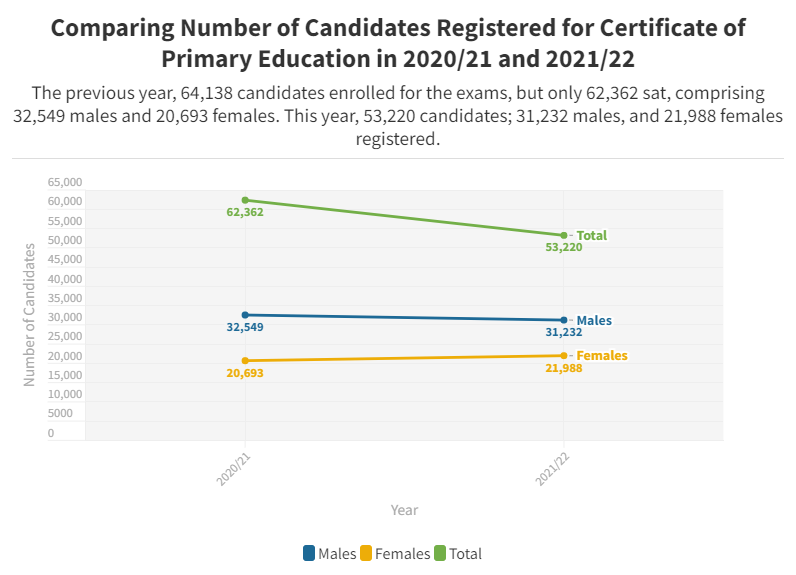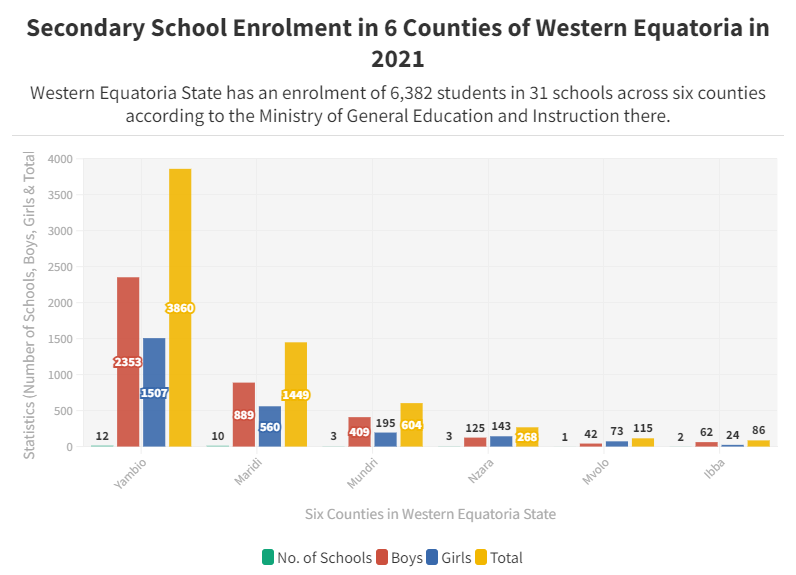Data Story: 14.69% drop in the number of pupils registered for final primary education examinations this year
The previous year, 64,138 candidates enrolled for the exams, but only 62,362 sat, comprising 32,549 males and 20,693 females. This year, 53,220 candidates; 31,232 males, and 21,988 females registered.
By Adut Maguil
Last week, the Ministry of General Education and Instruction stated that 53,220 candidates, 31,232 men, and 21,988 females, had registered for the next certificate of primary education examinations, which will begin on February 14, 2022.
However, as compared to the previous year, when 64,138 candidates enrolled for the exams, 62,362 sat for the exams, comprising 32,549 males and 20,693 females, this year’s number shows a 14.69 percent decrease in the number of candidates.
Male candidates declined by 1,317 from 32,549 in the 2020/21 exams, while female candidates grew by 1,295 from 20,692 the previous year.
| Year | Males | Females | Total |
| 2020/21 | 32,549 | 20,693 | 62,362 |
| 2021/22 | 31,232 | 21,988 | 53,220 |
Security issues in some parts of the country, the detrimental impact of COVID-19, which resulted in protracted school closures, and the destructive floods, according to Awut Deng Acuil, Minister of General Education and Instruction are some of the reasons for the low number of candidates.
About the Authors:
Adut Maguil, a Data Speaks Fellow at #defyhatenow South Sudan, wrote this data story, which was edited by 211 Check Editor Emmanuel Bida Thomas and approved for publication by Steve Topua, Data Analyst and Trainer. It’s part of the ongoing #defyhatenow South Sudan Data Speaks Fellowship program with funding from the European Union Delegation to South Sudan.
About South Sudan Data Speaks Fellowship:
This is a three months data journalism fellowship for South Sudanese content creators with an aim of educating participants on the fundamentals of data journalism through in-depth training facilitated by experienced data analysts.
The fellows have been selected from across South Sudan and they are trained in data sourcing/mining, data analysis, and data visualisation for three months (October to December)
Each fellow will produce a minimum of three (03) data stories during the fellowship. The focus will be on increasing access to information



